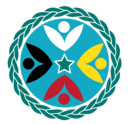Through our statewide partnerships, the Wiba Anung team, curated a series of 13 Indigenous food resource guides for the 12 Federally recognized tribes in Michigan, and the Detroit area. Wiba Anung has a strong commitment to Indigenous food sovereignty to enhance the health and wellness of Tribal communities by promoting local Indigenous food producers, and vendors. The following set of food resource guides share information on food access through community pantries, meal programs, food producers, and independent vendors. We are grateful to the many individuals and partners who helped us assemble this information! We acknowledge that these guides to do not offer a comprehensive list of every food resource available and look forward to the growth of these guides over time. If you would like to be included in future iterations of the guide and in our online guides, please visit https://msu.co1.qualtrics.com/jfe/form/SV_1T9KfszzHh8VwkC to share your information.
Resource Guides (Coming Soon!)
- Bay Mills Indian Community
- Grand Traverse Band of Ottawa & Chippewas Indians
- Gun Lake Band/Match-E-Be-Nash-She-Wish Band of Pottawatomi
- Hannahville Indian Community
- Huron Potawatomi/Nottawaseppi Huron Band of Potawatomi
- Keweenaw Bay Indian Community
- Lac Vieux Desert Band of Lake Superior Chippewa Indians
- Little River Band of Ottawa Indians
- Little Traverse bay Bands of Odawa Indians
- Pokagon Band of Potawatomi Indians
- Saginaw Chippewa Indian Tribe
- Sault Ste. Marie Tribe of Chippewa Indians
- Detroit Area Guide
Be Included
We recognize that this is not a comprehensive list of food resources, so if you would like to be included, or know of an important resource we should add, please share! You can add your resource by clicking: https://msu.co1.qualtrics.com/jfe/form/SV_1T9KfszzHh8VwkC
We aim to uplift and empower Indigenous producers and folks who are interested in improving access to Indigenous foods. There is a growing audience of people looking to purchase Indigenous foods, and we hope to inspire more people to join this food movement.
Individual tribes may have Tribal Food Sovereignty programs often linked to their Natural Resource Department and Community Health. Please visit your tribal office for more information on how to get involved.
Cottage Foods: Some items can be produced in your home under the Michigan Cottage Foods law. Learn more about that here: https://www.michigan.gov/mdard/food-dairy/michigan-cottage-foods-information
To register a product as “Certified Authentic Made/Produced by American Indians” with the Intertribal Agriculture Council visit: https://www.indianagfoods.org/american-indian-trademark
Additional Food Resources Available
ITC-MI Nutrition and Food Access Page: https://itcmi.org/home/departments/health-education-and-chronic-disease-2/nutrition-and-food-access/
Groundwork: Center for Resilient Communities: https://groundworkcenter.org
Eating the Great Lakes: The Decolonizing Diet Project: https://www.greatlakesnow.org/2017/11/eating-great-lakes-decolonizing-diet/
Sault Tribe Newspaper and resources: https://www.saulttribe.com/newsroom/sault-tribe-newspaper
North American Traditional Indigenous Food Systems: https://natifs.org
Taste the local difference: https://www.localdifference.org/
Market Maker—Michigan: https://mi.foodmarketmaker.com
Michigan Local Food Council Network: https://www.canr.msu.edu/local_food_council_network/
Great Lakes Intertribal Food Council https://greatlakesintertribalfood.org/producers/
Indigenous First: https://www.indigenousfirst.org/
Native Seeds: https://www.nativeseeds.org/pages/history-mission
Red Lake Nation (Nawapo): https://nawapo.com/
We Welcome Questions
If you have questions or feedback for us about these resource guides, please contact our team here: https://msu.co1.qualtrics.com/jfe/form/SV_6tXMA1q06BsrX6K
